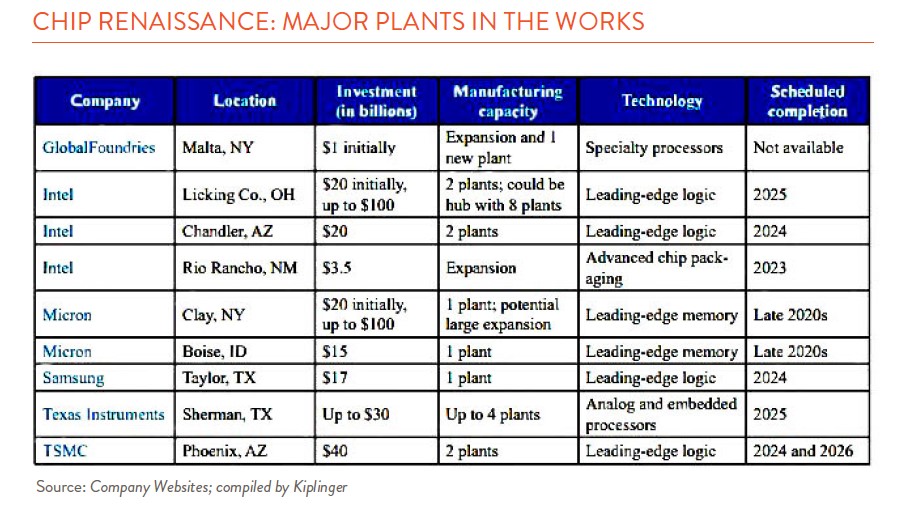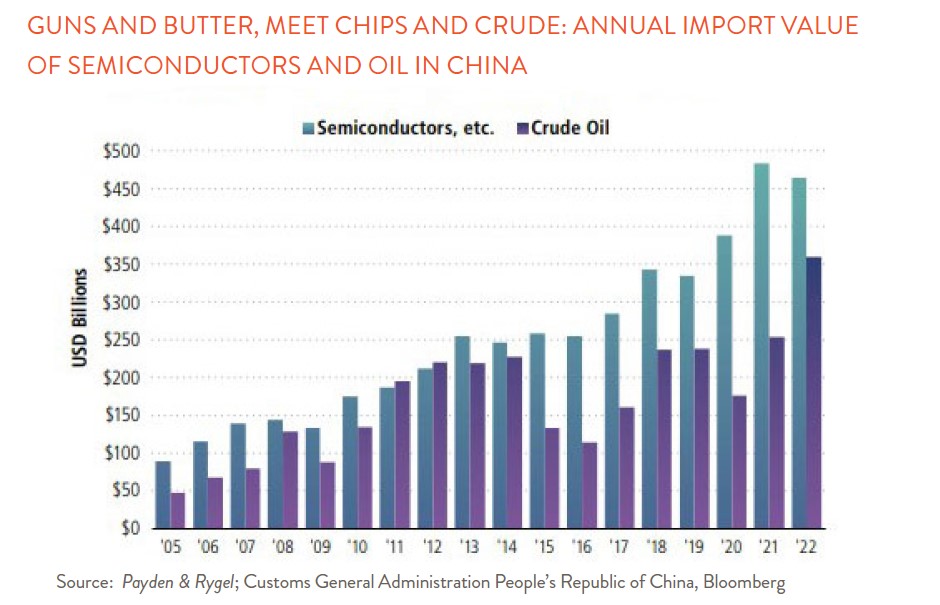Back in 1960, America made 100% of the world’s semiconductor chips. Names like Fairchild Semiconductor, Texas Instruments (TI), and eventually Intel dominated. Today we make just 12% of the world’s chips domestically. Before you panic, just remember one reason is that many U.S. companies set up plants abroad to take advantage of lower costs. A second reason is the growth of the Asian giants: Samsung in Korea and especially, Taiwan Semiconductor Manufacturing Co. (TSMC) in Taiwan. Almost half of all global chips today are made in Taiwan and TSMC is the dominant player.

Payden & Rygel an investment counsel firm describes in its quarterly newsletter that TSMC was started by Morris Chang, an MIT educated engineer who had the idea for a “fabless” company which would only make chips for others. It would not compete with its customers. He could not convince his employer TI to adopt the idea and when he was passed over for promotion for the top job there, he founded TSMC.
So, can American manufacturing catch up now? The answer is that no one country can do chip manufacturing alone. Chip making is now a global process. The blueprint for a chip might come from the Japan/UK company ARM; chip design is done by a number of U.S. companies; the precision manufacturing equipment market is dominated by five companies (one Dutch, one Japanese, and three American); and the final packaging is done by companies in Asia. So just because your factory is in the U.S. doesn’t mean you control your destiny.

China is very intent on developing its chip industry. As the chart above shows, they spend more money on importing chips than they do importing oil. In addition, China does not like being held hostage by the U.S. over buying high-end chips. Can they spend their way to dominance in chips? Many experts say no, because chip making is not just about money; it is a matter of trial and error, taking top equipment, and then tweaking the process endlessly. Could China simply invade Taiwan and capture the world’s most important chip maker? Again, the answer is probably no, since even TSMC relies on so many others outside of Taiwan in the manufacturing process.